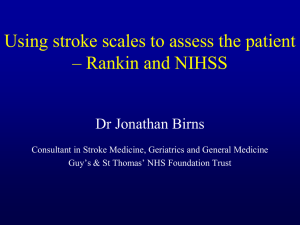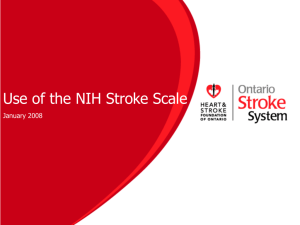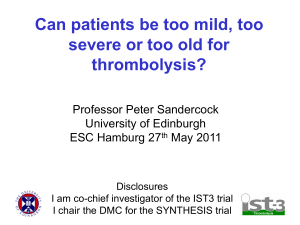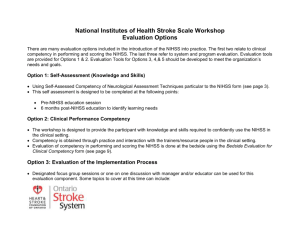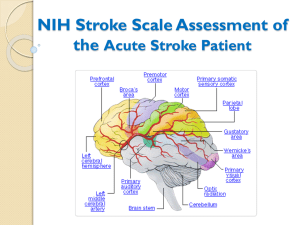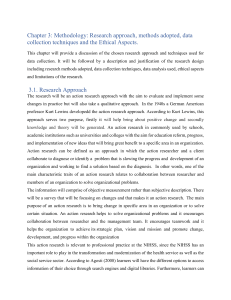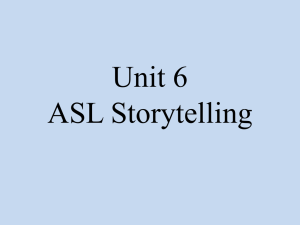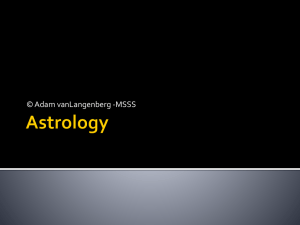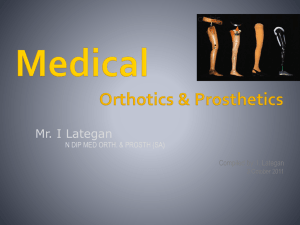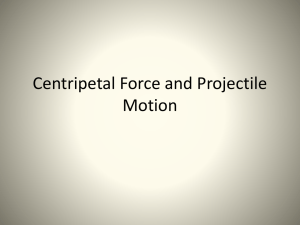Video
advertisement
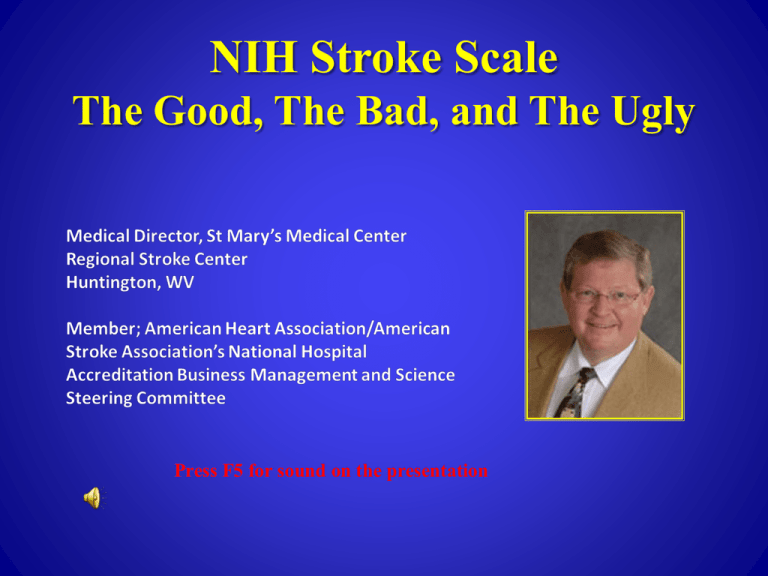
NIH Stroke Scale The Good, The Bad, and The Ugly Press F5 for sound on the presentation NIHSS Level of consciousness • • • • Alert Drowsy Stupor Coma 0 points 1 point 2 points 3 points NIHSS Questions Month/Age • Answer both correctly • Answers one correctly • None are correct 0 points 1 point 2 points NIHSS Response to 2 Commands • Follows 2 command correctly • Follows 1 command correctly • Cannot follow either command 0 points 1 point 2 points NIHSS Best Gaze • Normal • Partial gaze to one side • Forced gaze to one side 0 points 1 point 2 points NIHSS Visual Fields • • • • No visual loss Partial hemianopsia Complete hemianopsia Bilateral visual loss 0 points 1 point 2 points 3 points NIHSS Facial Motor Function • • • • No weakness 0 points Minor unilateral weakness 1 point Partial unilateral weakness 2 points Complete uni or bilateral weakness 3 points NIHSS Upper Extremity Motor Function (Right and Left Scored Independently) • • • • • Normal Drift Some effort against gravity No effort against gravity No movement 0 points 1 point 2 points 3 points 4 points NIHSS Lower Extremity Motor Function (Right and Left Scored Independently) • • • • • Normal Drift Some effort against gravity No effort against gravity No movement 0 points 1 point 2 points 3 points 4 points NIHSS Extremity Ataxia (Cannot Be Tested in Presence of Paresis) • No ataxia • Ataxia in 1 extremity • Ataxia in 2 extremities 0 points 1 point 2 points NIHSS Sensory Loss • Normal • Mild to moderate loss • Severe to total loss 0 points 1 point 2 points NIHSS Language • • • • No aphasia Mild to moderate aphasia Severe aphasia Mute 0 points 1 point 2 points 3 points NIHSS Articulation (Dysarthia) • Normal • Mild to moderate • Severe 0 points 1 point 2 points NIHSS Extinction/Inattention • No abnormality • Extinction to one modality • Extinction to 2 modalities 0 points 1 point 2 points The Good • Reliable – Interrater reliability confirmed • Valid • Time efficient – Original trial had a 6 minute average – Cell phone with video capability takes 38 seconds longer than bedside examination The Bad • Tendency to favor speech/language function over higher integrated sensory function – L MCA infarcts average 4 points higher than R MCA infarcts • Some items represent redundancy – Ataxia with gross motor function – Dysarthria with aphasia • Too often ataxia is over represented The Ugly • Brainstem/cerebellar function overly minimized • Not a good scale for the “dizzy plus” patient
